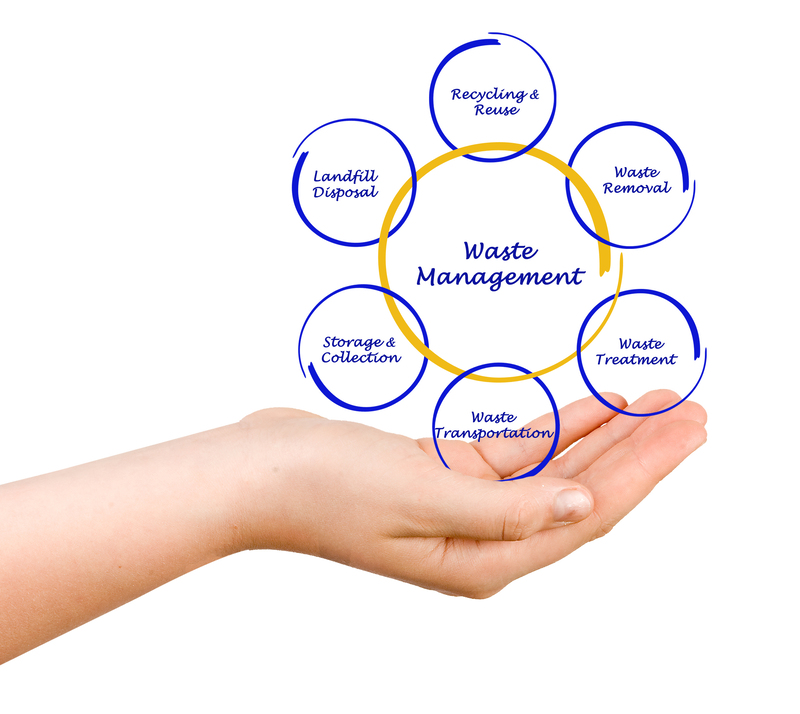Household Items You Can Easily Recycle: A Handy List
Posted on 07/05/2024
In this fast-paced world, it's becoming increasingly important to be mindful of our impact on the environment. Recycling is one simple way that we can all contribute towards a greener future. From paper and plastic to glass and metal, most of us are familiar with common household items that can be recycled. But did you know that there are many other items in your home that can also be recycled? In this article, we will provide you with a handy list of household items that you may not have realized can be recycled.
Electronic Waste
Electronic waste, or e-waste, refers to any electronic device that is no longer in use. This includes old cell phones, laptops, printers, and even small appliances like toasters or blenders. These devices contain valuable materials such as copper and gold which can be extracted and reused. However, they also contain harmful components like lead and mercury which must be disposed of properly. Many cities offer e-waste recycling programs where you can drop off your old electronics for safe and responsible disposal.

Clothing and Textiles
Did you know that clothing and textiles make up around 5% of all landfill waste? Instead of adding to this problem, consider donating your gently used clothing to thrift stores or participating in clothing swap events. If your clothing is beyond repair or donation, look for textile recycling programs in your area. Some organizations will take old clothes and turn them into rags or insulation for homes.
Cooking Oil
When cooking oil is poured down the drain, it can cause serious damage to our water systems. Instead of discarding it after use, let it cool down and pour it into a container for recycling. Many municipalities have drop-off locations for used cooking oil where it can be turned into biofuel for vehicles.
Batteries
Batteries contain toxic chemicals that can harm the environment if not disposed of properly. However, many batteries can be recycled, including rechargeable ones. Look for designated battery recycling containers in public spaces or check with your local recycling center on how to properly dispose of them.
Plastic Bags and Wrappers
Plastic bags and wrappers are not accepted in most curbside recycling programs as they can easily get caught in machinery and cause damage. However, many grocery stores and retailers have collection bins for plastic bags and wrappers that will then be recycled into new materials.
Glass Jars and Bottles
Glass is a highly recyclable material, but it's important to make sure it is clean and free of any food or liquid residue before recycling. Glass jars and bottles can be used over and over again to create new products such as new glass containers or even reflective pavement for roads.
Pros and Cons of Recycling
The pros of recycling are clear; it helps reduce landfill waste, conserves natural resources, and decreases pollution. It also creates jobs in the recycling industry and helps save energy. However, there are some cons to consider as well. Recycling requires transportation which uses fuel, and not all items can be recycled efficiently due to technology limitations. Additionally, some materials lose quality each time they are recycled, making it necessary to eventually dispose of them.
Tips for Effective Recycling
To ensure that your efforts make a real impact on the environment, here are a few tips for effective recycling:
- Rinse out all food or liquid residue from items before placing them in the recycling bin.
- Check with your local municipality on what items they accept for recycling.
- Be mindful of contamination - do not mix non-recyclable items with recyclables.
- Reduce your overall consumption by choosing reusable products over single-use ones.

Takeaways
- Many household items can be recycled, including electronic waste, clothing and textiles, cooking oil, batteries, plastic bags and wrappers, and glass jars and bottles.
- Recycling has numerous benefits for the environment, but there are some cons to consider as well.
- To ensure effective recycling, it's important to properly clean and separate items and reduce overall consumption.
Conclusion
Recycling is a simple way that we can all take action towards a more sustainable future. By being aware of which household items can be recycled and properly disposing of them, we can help reduce waste, conserve natural resources, and decrease pollution. Let's all do our part in creating a cleaner and greener world for generations to come.
